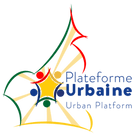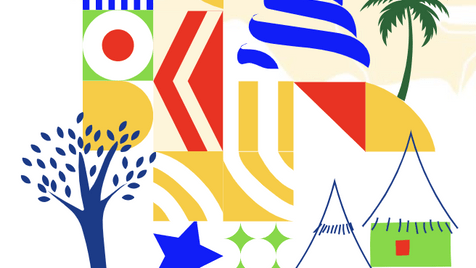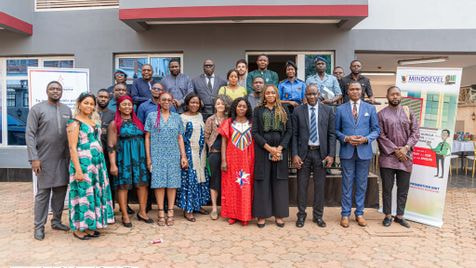The Collaborative Digital Platform : a digital tool to support urban governance in Cameroon

CartONG has finalized the first version of a web platform: the “Plateforme Digitale Collaborative – PDC” (Collaborative Digital Platform of Cameroon in english), a collaborative and innovative digital space developed with the support of Expertise France, as part of the “Cameroon – Green, Inclusive and Sustainable Cities” program funded by the European Union.
Cameroon: an urban context in transformation
With an urban population of 55% in 2020 projected to reach 70% by 2050, Cameroon is experiencing rapid urbanization, bringing with it numerous challenges: pressure on infrastructure, informality, pollution, limited mobility, and increased vulnerability to climate change.
To address these challenges, the European Union supports the “Cameroon – Green, Inclusive and Sustainable Cities” program, with a budget of €24 million, one of its components being to strengthen governance through innovative tools. It is within this framework that CartONG contributed to the development of the Collaborative Digital Platform (CDP).

A tool to connect urban planning actors
The Platform is designed to centralize information on urban planning projects, actors, and resources in Cameroon. It allows users—local authorities, donors, technicians, researchers, or civil society organizations—to:
- Connect easily with each other,
- Access a comprehensive reference database,
- Visualize and map information,
- Collaborate on urban projects,
- Showcase local best practices.
It was designed through a participatory approach, with a clear objective: to foster local ownership and enable autonomous management by a national community of users and facilitators.

The DiverCity Space: a space dedicated to urban innovation
The DiverCity Space is a 250 m² third-place opened in Yaoundé by the Ministry of Housing and Urban Development. Designed as a space for dialogue, experimentation, and training, it brings together urban stakeholders (institutions, researchers, citizens, innovators, etc.) around territorial transformation challenges. While CartONG was not involved in its creation, this space is fully complementary to the CDP. DiverCity Space offers a physical, locally driven dynamic, while the CDP extends these exchanges, consolidates the data produced, and structures knowledge to inform public decision-making. Together, they form a coherent system to support cities in moving toward more inclusive, data-driven governance.
A trained and engaged user community
Developed through an agile and participatory approach, the CDP has achieved more than just creating a digital tool: it has helped structure a truly local, active, and trained community—contributors, administrators, and developers—capable of managing, enriching, and evolving the platform independently. By bringing together institutions, experts, associations, and citizens during workshops, this local community plays a key role in the platform’s sustainability and vitality.
What’s next?
Version 1 of the platform was launched last Thursday during an event organized by Expertise France with local stakeholders and national authorities in Yaoundé. The next steps include:
- Contributions from the community to expand the database,
- The development of a roadmap for a new version, building on user feedback.
The platform is designed as open-source to promote replicability at various levels (city, region, etc.) or in other contexts and sectors such as health or the environment.
The conclusion of this project marks the culmination of our web development team’s collective efforts. Beyond simply delivering a solution, the project has strengthened our cohesion, enriched our skills, and opened up new perspectives for future innovation.